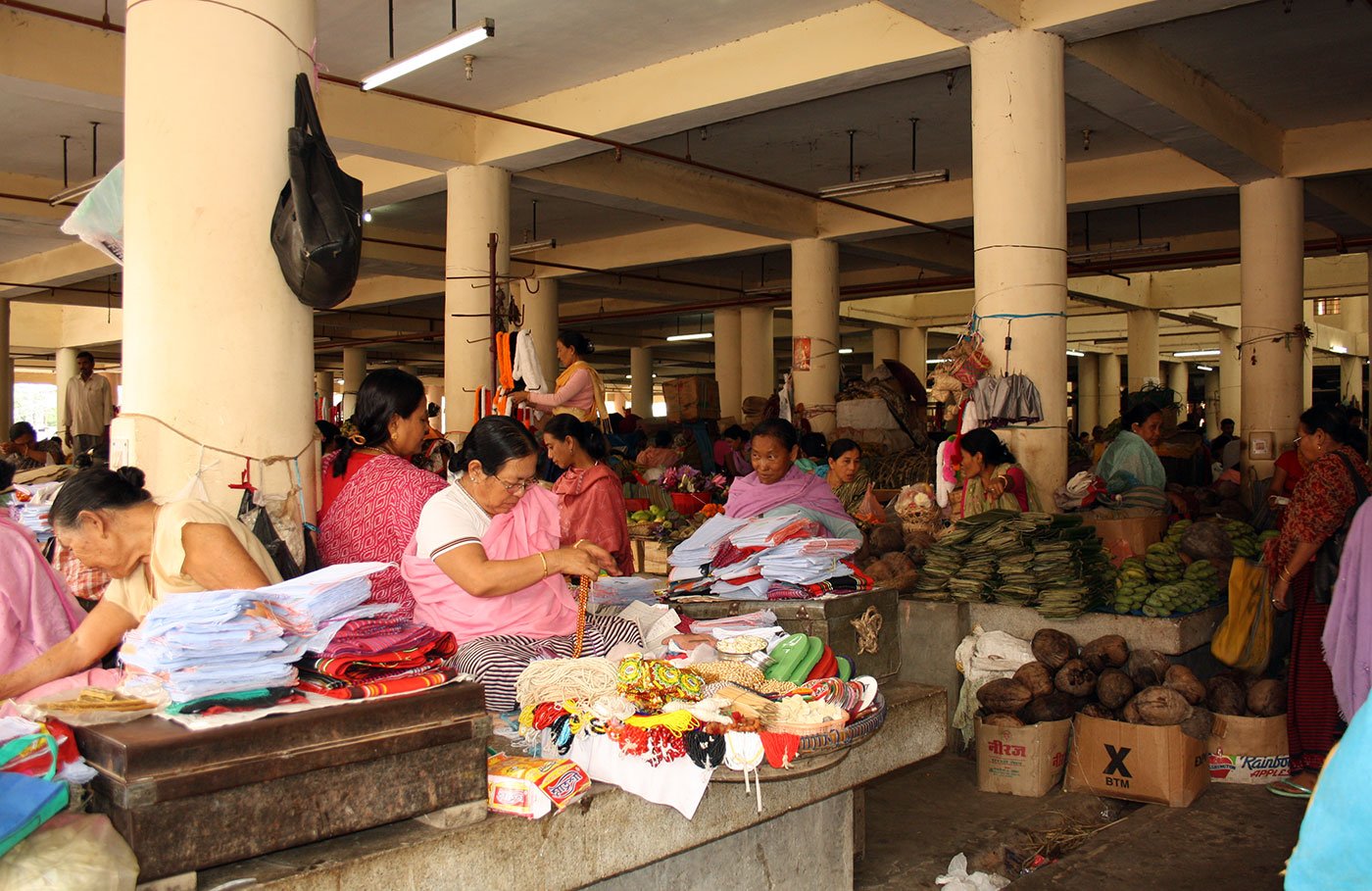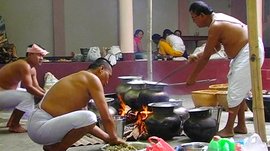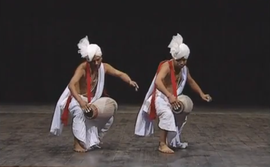A betel-leaf stain colours her laughter as 60-year-old Manorama Devi joins a group of women. Someone along the line has cracked a joke about men and the vegetables they represent, and the entire row has erupted. It is a drowsy afternoon, the women are sitting in a straight line under the Bir Tikendrajit flyover in Imphal, encroaching much of the road and allowing very little space for any vehicular traffic.
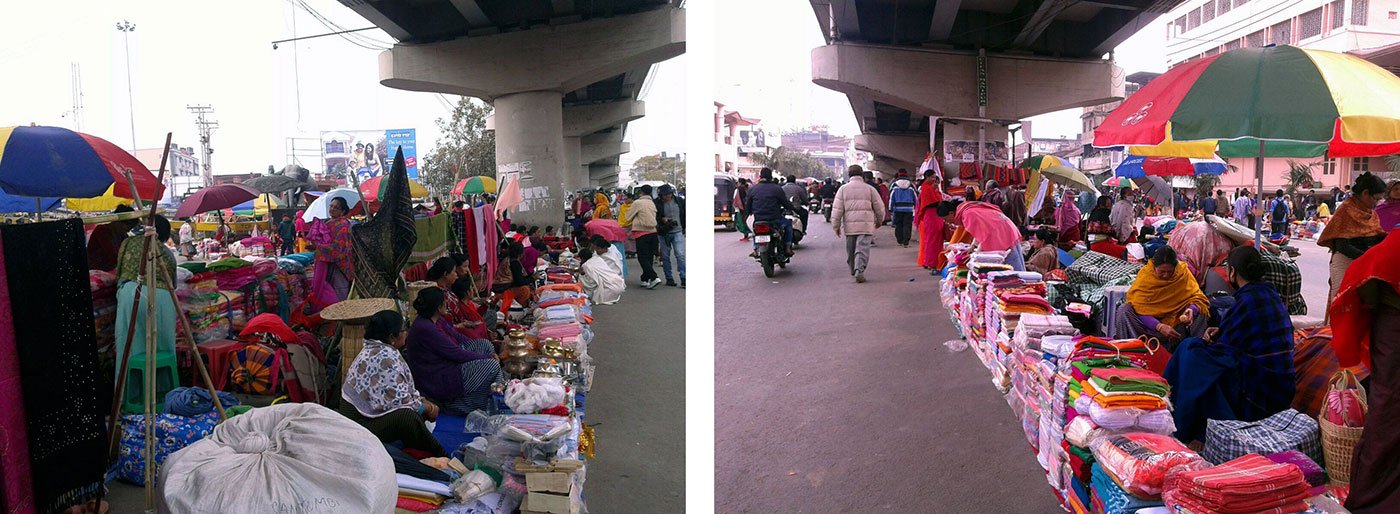
Stalls were moved to the Bir Tikendrajit flyover after an earthquake damaged the Ima Keithel
The earthquake in January 2016, 6.7 on the Richter scale, caused widespread damage to the iconic Ima Keithel – bent pillars, broken walls and large chunks of plaster and cement crumbled with the tremors. The very next day, the industrious Imas shifted their business to the public road outside. If there was anxiety at the loss of their workplace or uncertainty about the future, it had no time to fester.
Manorama’s links to the Ima Keithel go back at least four generations. “My mother gave me the stall; she got it from her mother-in-law, who got it from her mother. May be it goes back further, I don’t know. It isn’t just a slab or a stall. It’s our life,” Manorama says, as she peeks inside a gunny sack where the day’s earnings are kept.
Angom Memma is sitting a few spots away from Manorama. A whizz of scooters has raised dust. Memma is clearly worried about how long this will be their place of business. “Whatever happens in Manipur affects this market – curfew, strike, earthquake, everything. The Keithel was our home, our resting place and our place of work. Our lives revolve around it. I cannot stay at home. I can simply not get used to it, so I have come even though we are sitting on the road.”
The Ima Keithel, or the ‘mothers market’, the sprawling colourful maze in Manipur’s capital, looks deserted even weeks after the earthquake. The government is yet to make alternative arrangements for the women. Before the earthquake struck, this was one of the liveliest parts of the city, where women called out to buyers from behind towers of hand-woven phaneks or mountainous piles of ginger and other vegetable produce.
Around 6,000-7,000 women came to the market every day to sell their produce and wares, making this one of the biggest women’s markets in Asia. From dried fish to spices, vegetables, handloom and cosmetics, the Ima Keithel served up a bewildering array of sights, sounds and smells. Slots had been zealously guarded here, handed from mother to daughter or daughter-in-law.

The women’s links’ to the Ima Keithel go back at least four generations
The very buildings that housed the Ima Keithel mark the many phases of the state’s history. Ever since the Nupi Lan or the two Women’s Wars of 1904 and 1939 against the economic policies of the British, the Ima market has been a strong voice on political and social matters in Manipur.
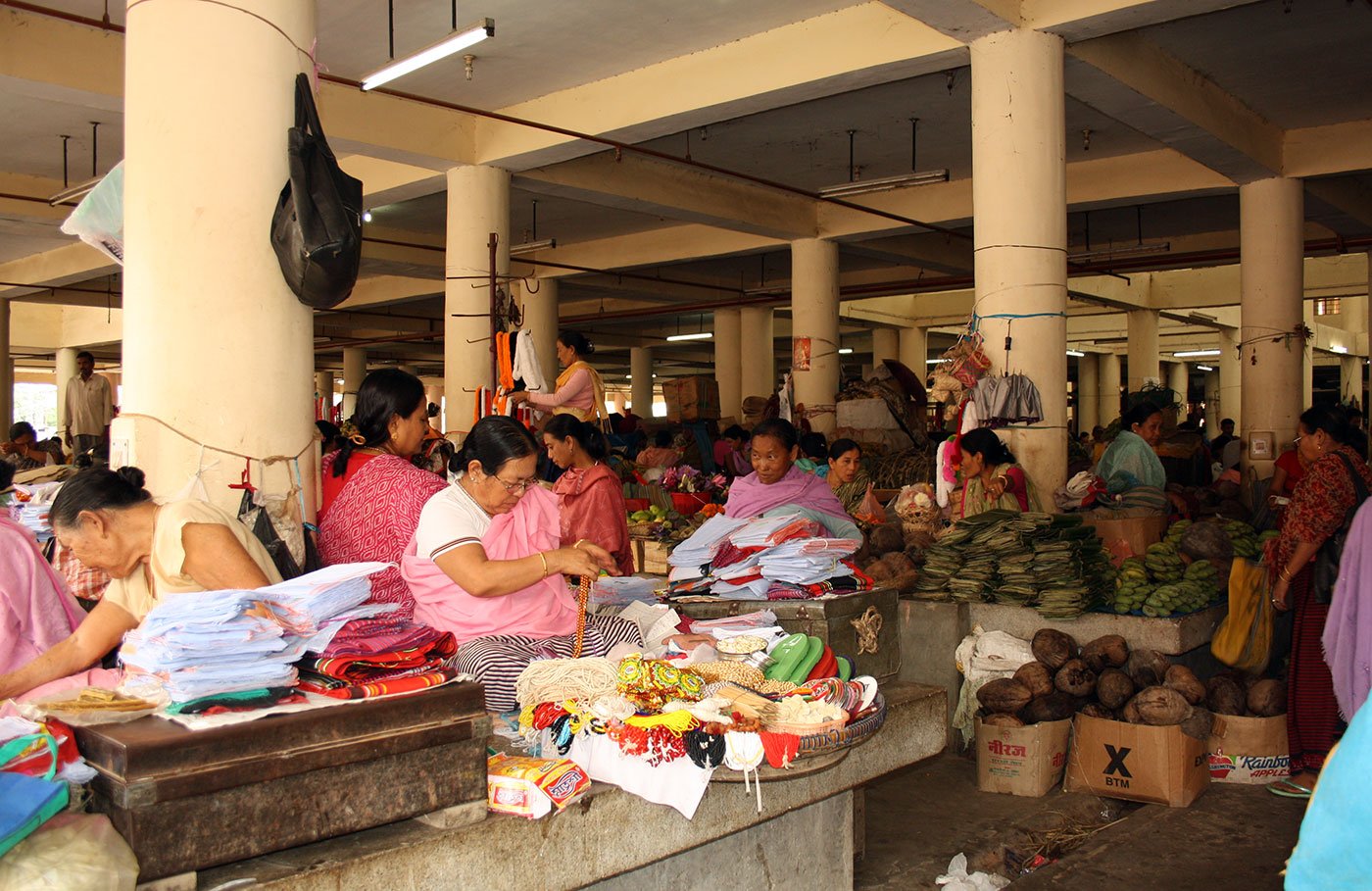
The rows of items speak of women’s indelible place in Manipur’s economy
Dissent and protest are embedded in the ethos of the market. Over the years the stall-owners have come together on all major occasions – to support Irom Sharmila, on a hunger strike demanding the repeal of the Armed Forces (Special Powers) Act, to protest against the killing of Thangjam Manorama in 2004, to oppose some of the clauses of the June 2001 ceasefire between the Centre and the Naga rebel group, the NSCN-IM.
At its core, the Ima Keithel has remained a nerve centre of life, livelihood and identity; more importantly, it is a reminder of women’s indelible place in Manipur’s history and its economy.
And there are many who believe the spirit and life of the Ima Keithel will not be shaken by a few tremors.
(The accompanying video was filmed before the earthquake).
